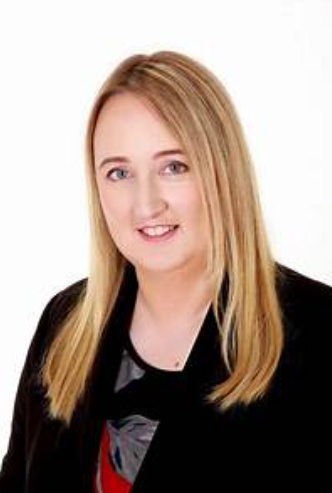Table of Contents
Leanne Boase is a Nurse Practitioner and President of the Australian College of Nurse Practitioners, representing more than 1,300 NPs and Advanced Practice Nurses. She gives us her thoughts on the COVID vaccine rollout and outlines the raw impact it will have on the community by omitting the role of nurse practitioners in the rollout.

Leanne Boase Writes
Nurse Practitioners (NPs) in Australia are currently pushing to be involved, and to assist with ensuring every Australian has access to the COVID vaccine. As NPs can prescribe and administer vaccines, many people will find it surprising that they have not been included in planning for this enormous task ahead of us, despite our continued efforts to contribute.
Nurses are rarely consulted in such matters, yet have so much knowledge and expertise to offer, not only in relation to nursing, but health care, and health service planning and delivery.
Since January I have been raising concerns with the Australian Department of Health about the omission of NPs from the vaccine rollout plans. I have been in meetings where other nursing groups have raised concerns about nursing more generally being left out of the planning.
Like other nursing leaders, I have been involved in the COVID response on a national level since February 2020. That is why we are so stunned about being left out at this critical time.
Many people across Australia have heard of NPs, or may have seen one for their healthcare. Whether you are familiar with the role or not, you may wonder why they are collectively and repeatedly fighting for the right to help.
For many rural and remote communities, all healthcare is delivered by a NP. So the lack of inclusion of NPs may mean certain communities either miss out or have to travel great distances to access health and healthcare. One example is in the Mallee region of Victoria, where entire towns are supported by a NP.
Factors at play
The Australian College of Nurse Practitioners (ACNP) as the peak body has been advocating for over 15 years for health care consumers to have access to NPs, and for their right to choose a NP for their health care. So why is this such a challenge?
There are many factors here, but the main ones include:
- Under-representation of nursing at all levels of health service planning, design and implementation
- Under-valuation of the education, experience and expertise of nurses and their leadership skills by government, organisations, and the media
- Lack of understanding of nursing roles, especially the role of the Nurse Practitioner.
How did we get here?
The old ‘handmaiden’ approach, where nurses were subservient and performed the menial tasks started marching out the door in the 1800s, when nurses during times of war took the lead in improving healthcare and their own education.
You could be forgiven for thinking that by 2021 we would have left the ‘nurse as handmaiden’ approach behind. We should have, we could have, but essentially, we have not.
Nurses and midwives certainly left this behind decades ago. They do not see themselves or their profession this way, but policy makers, the media, and many people of influence still do.
It is in the interests of healthcare and consumers to support the development of nursing, and indeed, nursing itself has developed; however, this has undoubtedly been seen as a threat by other healthcare professions who seem to exert influence our policy makers.
In 2000, we saw the first NPs in Australia. Now we have over 2,000 NPs in Australia, a good number, but nowhere near enough.
Stifled by archaic policy and views, and irrationally blocked by others who fear competition for the healthcare dollar, we have yet to realise the full potential. The healthcare dollar actually belongs to the patient, the public.
Experienced and experts
Consider the most experienced nurse you have ever encountered, one with extensive education and expertise, who is a leader in their workplace, and beyond. That is your future Nurse Practitioner. These are not junior, or inexperienced nurses.
Prior to the NP role in Australia, the career options included staying in their current role, or moving on to a management role, where there is limited to no contact with patients.
The NP role allows the most experienced and educated nurses to progress their career while remaining in direct clinical roles. These advanced and highly skilled nurses then must add a Master of Nursing to their extensive education, one that includes Master’s level prescribing and diagnostics subjects, and also prove their competence at an advanced level.
The regulator, the Nursing and Midwifery Board of Australia, defines Nurse Practitioners as ‘independent’ and ‘autonomous’, and sets out clear standards for practice, which are underpinned by the standards for Nurse Practitioner education.
There is overwhelming evidence to support the safety, quality and cost effectiveness of NPs in Australia and Internationally. This was extensively highlighted by the Nurse Practitioner Reference Group as part of the MBS Review, and further supported by the KPMG report.
So how on earth can Nurse Practitioners not be included in something so crucial as the COVID vaccination program?
Nursing has evolved, and adapted well to deliver healthcare in 2021, they are highly educated, skilled and ready to contribute. They are leaders in both nursing and health. The public trusts nurses.
It’s time this was reflected in policy, planning and decision making, and it is high time the media took some notice too.
When considering the COVID vaccine, it’s not only about preventing death; please think about protecting yourself, vulnerable people and loved ones, and avoiding lifelong and serious complications of COVID-19.
You will most likely have your vaccine administered by a nurse. It makes sense to activate Nurse Practitioners too.
This article was published with Leanne’s approval.
Are you or someone you know potentially keen to write for The Nurse Break? Email hello@thenursebreak.org
For more amazing articles go HERE






You must be logged in to post a comment.